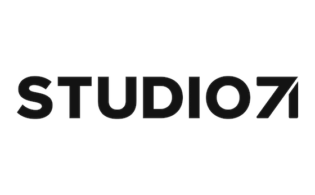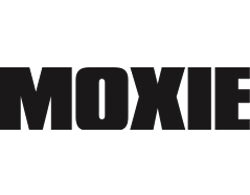PREMIUM: James Baker, president and co-CEO of Red Arrow Studios, talks to World Screen about fostering and retaining talent, financing and packaging IP and responding to the booming demand for local content worldwide.
As economic headwinds and shifts in consumer behavior put pressure on traditional ad revenues, European media giant ProSiebenSat.1 Media has been looking to its production and distribution division, Red Arrow Studios, as a critical growth area. With 20 production companies and labels in seven markets, and the distributors Red Arrow Studios International and Gravitas Ventures, the segment recorded a 28-percent increase in revenues in the second quarter of this year. At the heart of the business is a focus on independent creativity, with outfits maintaining their own brand identities and production slates as they cater to the factual, scripted and formatted entertainment needs of channels and platforms. Red Arrow Studios International is broadening the reach of titles from its sister production companies as well as third parties, pioneering new financing and distribution models as it invests in projects early on in their life cycles.

WS: Red Arrow Studios has been in the news this week—but let’s start with the fact that the company has been a significant highlight in ProSiebenSat.1’s financials this year. What’s driving those results?
BAKER: We are having a good year, with our U.S. companies especially firing on all cylinders. We’ve had some fantastic shows from 44 Blue Productions, which produced Jailbirds for Netflix and First Responders Live for FOX; and Left/Right with The Weekly, the New York Times show for FX and Hulu. Those add up. We’ve had some really good performances from Dorsey Pictures, Karga Seven Pictures, Half Yard Productions, Kinetic Content, Fabrik Entertainment [and others]. All in all, the whole portfolio is having a really strong year, and that seems to be following through into next year as well. Our development slate across scripted and non-scripted is looking strong, and we’re positive about the way the business is going.
WS: What can you tell us about ProSiebenSat.1’s plans to sell all or part of Red Arrow Studios?
BAKER: At ProSiebenSat.1’s capital markets day event last year, we said that we are open to continue evaluating all different kinds of scenarios for the business.
We have recently started a strategic review of Red Arrow Studios, bringing in Morgan Stanley to handle the process. A sale of the business would be just one option amongst many to consider.
WS: Looking at your production network, how are you managing these various labels so that they keep their distinct identities while also functioning as part of the broader Red Arrow Studios group?
BAKER: We were always very clear that we wanted to give the companies and the creative leads in the group independence to do what they do best: produce shows they believe in and are passionate about. There’s a danger when you apply groupthink to creative people, as they all have different approaches to how they develop, create and produce programs. There’s also a danger in forcing those companies to work in the same way or operate under a strict set of group rules. Everyone in Red Arrow has independent creativity—with the companies keeping their own names and identities—resulting in two really good things: it gives them the confidence to get on with what they do best, without too much interference; and when Nina Etspueler, our group creative director, identifies opportunities that can connect the group up—either by sharing content between companies or developing opportunities with our distribution business—they are open to it because it doesn’t feel like it’s a rule-driven process. That’s been demonstrated by us retaining great talent. Chris Coelen, the CEO of Kinetic Content, is a good example, as he’s recently re-signed with us for an extended period. All of our key creative leaders have extended, making for a really solid creative base.
WS: And Chris is now working with Red Arrow to expand into scripted.
BAKER: We sat down with Chris and asked, Where do you want to go next? He said he’d love to carry on doing their great work in non-scripted but felt, and we agreed, that the scripted space is an exciting place at the moment. All the old rules seem to have gone out the window. Chris’s background is in managing and championing talent, and finding great stories and producing them, all of which seems a perfect fit for the scripted space. And it touches on a strategy that we believe is important: it’s much better for us to develop and grow the companies and the talent we have in the portfolio than to endlessly search for shiny new things in the market. IP and talent are at the core of the success of any business, and I firmly believe it’s less about the quantity of companies we have, and more about the quality and the success of those companies. We have a well-balanced portfolio, so the need for us to buy and bolt-on more is small compared to growing the businesses we already own.
WS: Your U.S. production companies, in particular, are known for innovative factual content. How are they remaining at the forefront in a very crowded factual landscape in the U.S.?
BAKER: A lot of networks, particularly given the competitive pressures they are facing, want to feel secure that they are going to get shows that not only are successful but can return. Our non-scripted companies are massively well respected in the U.S., with big returning brands like Little Women, Say Yes to the Dress, Pit Bulls & Parolees and The Circus—and that’s very helpful. And the other part is the way that we deal with developing opportunities. Nina gets in the middle of the group, looking at new ideas coming out of our Danish company, Snowman Productions—which created Married at First Sight—or A League of Their Own and Old People’s Home for 4 Year Olds creators CPL in the U.K., or in Germany, Israel or Turkey, and makes sure they flow to all our companies in the U.S. It’s a very positive, creative ecosystem.
WS: How has Red Arrow Studios International evolved as a distributor amid the massive changes in how content is monetized today?
BAKER: Red Arrow Studios International is a relatively young company, so it has to be incredibly innovative about how it develops content for its pipeline. Bo Stehmeier, who runs the business, and his head of acquisitions, Alex Fraser, can’t wait for content to come to them, or get into expensive buying competitions with other distributors—the market is too tough to do that anymore. We have to get out there and behave more like a developer, packager and financier than a traditional distributor. In a way, we are operating as a mini studio: getting engaged with ideas from within the group and from third parties and investing early, taking an active role in steering development and then going out and pitching. All this can be seen in action with Carlo Dusi—Red Arrow Studios International’s executive VP of commercial strategy, scripted—who has a wealth of scripted development projects underway for international. We have a tight, dynamic setup and don’t have the endless fear that we’re a legacy business that relies on a decades-old catalog of titles that chug along. We are always looking for new shows and new opportunities. As a result, the catalog is fresh.
WS: Red Arrow has made a big bet on scripted over the last few years. What’s the strategy on both the production and distribution sides of the business?
BAKER: On the production side, our core drivers are Henrik Bastin and Melissa Aouate at Fabrik Entertainment in the U.S., which produces Bosch for Amazon and the forthcoming new CBS All Access show Interrogation; and Hilary Bevan Jones at Endor Productions in the U.K., who most recently has been making Deep State for Fox Networks Group [Europe & Africa] and the forthcoming drama Vienna Blood, and has an amazing track record. They are our two engines. They operate in two very different ways, which reflects our approach, because I see the scripted market split into two different models. One is the U.S.-driven model where budgets commonly start at $4 million an episode and go up to much higher numbers. That needs a whole different approach from the European one, where the price point is still $2 million per episode. While Fabrik is our company for U.S. scripted production, there are also fantastic opportunities in international co-production and packaging. We’re building a slate through our companies, including key talent such as acclaimed director Kari Skogland and her Mad Rabbit production company, and we’re investing in scripted projects from third-party producers through Carlo [Dusi] and Red Arrow Studios International that we believe have the potential to work in an international co-production market. Strategically, I think there is going to be growth and real opportunity in European co-production. You have global streaming platforms looking for great projects, but you also have the European free-to-air networks and public channels desperately needing to invest in and create content that can help them fight the platforms. That, in turn, provides a lot of growth potential.
Vienna Blood is an excellent example of getting European channel partners—ZDF and ORF—and a company like us cooperating to create a great show. It is a brilliant period detective series shot in Vienna and produced in English by Endor and Austrian producer MR Film. It has an impressive pedigree, including Steve Thompson writing the show based on an excellent series of books, and a great cast. We’re just taking it to market now and the response has been fantastic, including a recent sale to the BBC. It’s a great example of how you can create a superb English-language series commissioned by European partners and with global appeal, which is a real testament to high-quality European drama. And there’s more where that came from!
WS: As the U.S. majors keep more of their product for their own streaming services, will that create additional opportunities for companies like Red Arrow in the global marketplace?
BAKER: We’re in the middle of an extraordinary period in our industry. As the dust settles and we start to understand the ecosystem of the platform side of the business, we’ll see opportunities on both sides. As Netflix, Amazon and others have less opportunity to buy from competing studios and platforms, they are going to look to producers and creative talent to fill that gap, in the U.S. and internationally. That’s an opportunity. And I think European broadcasters are now very aware of the evolution of the platform business in Europe—not least our parent company, ProSiebenSat.1, which launched its streaming platform Joyn in June and already has over 3.8 million monthly users across all platforms. I think we will see European platforms increasingly recognize that creating local content is a vital part of a strategy to differentiate themselves. We have local content producers to take advantage of that opportunity, and it’s a great time to be a producer.
WS: What are the other growth opportunities for the company in the year or two ahead?
BAKER: Our global digital studio, Studio71, is also having a fantastic year, showing double-digit revenue increases in Germany and the U.S. They are an important partner to have because they are absolutely at the center of the evolution of where technology and data, content and a new generation of talent and creators meet. So we get a lot of learnings from them. I’ve been around for more years than I care to remember, and I can’t think of a more exciting time to be in the content business.






